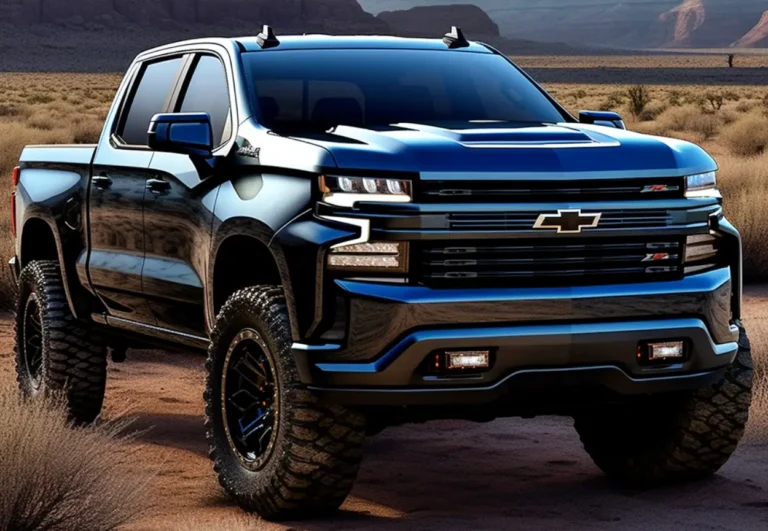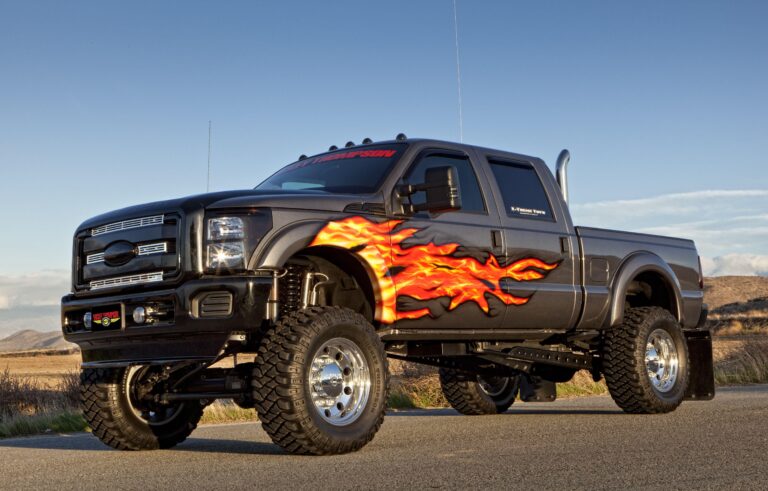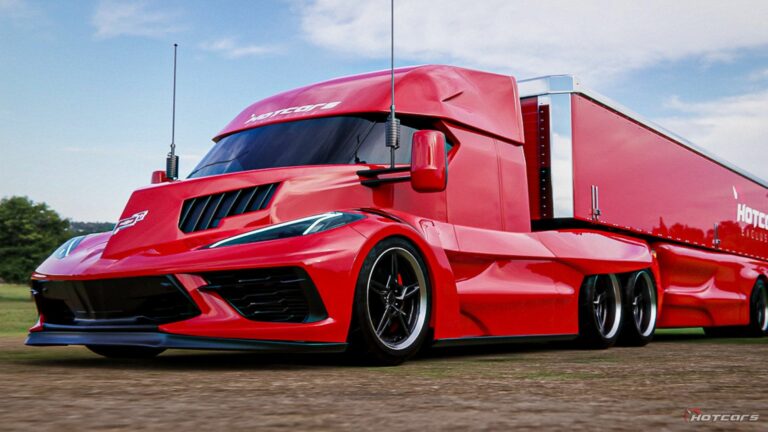How Much Is A Snow Cone Van: Your Comprehensive Guide to Mobile Sweet Success
How Much Is A Snow Cone Van: Your Comprehensive Guide to Mobile Sweet Success cars.truckstrend.com
The chime of a bell, the vibrant colors of shaved ice, and the sweet scent of flavored syrup wafting through the air – a snow cone van isn’t just a vehicle; it’s a mobile beacon of joy and a potentially lucrative business venture. For many aspiring entrepreneurs, the allure of a low-overhead, high-profit margin food business on wheels is incredibly strong. But before you can start dishing out icy delights, a fundamental question looms large: "How much is a snow cone van?"
The answer, like a perfectly layered snow cone, isn’t a single, simple figure. It’s a spectrum, influenced by myriad factors ranging from the vehicle’s age and condition to the sophistication of your equipment and the specific regulations of your operating area. This comprehensive guide will break down every conceivable cost associated with acquiring, outfitting, and launching your very own snow cone van, providing you with the clarity needed to budget effectively and turn your sweet dreams into a tangible reality.
How Much Is A Snow Cone Van: Your Comprehensive Guide to Mobile Sweet Success
The Appeal of a Mobile Snow Cone Business
Before diving into the numbers, it’s worth understanding why a snow cone van is such an attractive proposition. Compared to a traditional brick-and-mortar store, mobile units offer unparalleled flexibility, allowing you to chase events, cater to specific neighborhoods, and adapt to seasonal demands. The startup costs are generally lower, and the profit margins on a simple product like a snow cone (primarily ice and syrup) can be incredibly high. It’s a fun, accessible business that connects directly with communities, making it a popular choice for first-time business owners and seasoned entrepreneurs alike.
Understanding the Core Costs: The Van Itself
The most significant initial investment will undoubtedly be the vehicle itself. This forms the foundation of your mobile operation.
- Used Cargo Van (e.g., Ford Transit, Ram ProMaster, Chevy Express):
- Cost: $5,000 – $20,000
- Pros: Most affordable entry point, relatively easy to find, can be converted DIY.
- Cons: Requires extensive interior build-out, may have higher maintenance costs due to age/mileage, limited standing room.

- Used Step Van (e.g., Former Bread Truck, FedEx Truck):
- Cost: $10,000 – $35,000
- Pros: Ample interior space for standing and equipment, durable, often already set up with basic shelving or electrical.
- Cons: Older models can be fuel inefficient and require more mechanical upkeep, less maneuverable than cargo vans.
- Used Food Truck (already converted):
- Cost: $20,000 – $80,000+ (depending on age, condition, and existing equipment)
- Pros: Potentially turn-key, may already meet health code requirements, saves significant build-out time.
- Cons: Higher upfront cost, you might pay for equipment you don’t need, may require modifications to suit snow cones specifically.
- New Cargo Van (Shell Only):
- Cost: $30,000 – $60,000
- Pros: Brand new vehicle with warranty, no prior wear and tear, complete control over custom build.
- Cons: Significantly higher initial cost, still requires full build-out.
- New Custom-Built Snow Cone Van:
- Cost: $60,000 – $150,000+
- Pros: Tailored exactly to your specifications, professional finish, high reliability.
- Cons: The most expensive option, long lead times for construction.
Key Consideration: The choice between new and used, and the type of van, will heavily dictate your initial outlay. Many start with a used cargo or step van to minimize risk and build capital.
Essential Equipment & Outfitting Costs
Once you have your shell, you need to transform it into a functioning snow cone operation. This is where the internal costs add up.
- Snow Cone Machine(s):
- Cube Ice Shavers (Entry-level to Commercial): $200 – $2,000 (Good for lighter volume, easier to source ice)
- Block Ice Shavers (Commercial Grade): $1,000 – $4,000 (Produces fluffier ice, preferred by many, requires specific ice blocks)
- Industrial High-Volume Shavers: $3,000 – $8,000+ (For large events, high demand)
- Consider: Having a backup machine is wise for a mobile business.
- Ice Storage:
- Large Insulated Coolers/Ice Chests: $100 – $500 (For holding bagged or block ice)
- Commercial Freezer (if making/storing block ice): $500 – $2,500 (For larger operations)
- Water System:
- 3-Compartment Sink & Handwash Sink: $500 – $2,000 (Required by most health departments)
- Fresh Water & Grey Water Tanks (20-100 gallons each): $200 – $800
- Water Pump & Water Heater: $200 – $700
- Power Source:
- Generator (Portable or Mounted): $500 – $5,000 (Depending on wattage and fuel type)
- Inverter/Battery Bank System: $1,000 – $10,000+ (Quieter, eco-friendlier, but higher upfront cost)
- Shore Power Hookup: $100 – $300 (For plugging into external power at events)
- Syrup Storage & Dispensing:
- Syrup Bottles/Dispensing Pumps: $50 – $300
- Shelving/Cabinets: $200 – $1,000 (For organized storage)
- Point-of-Sale (POS) System:
- Tablet with Card Reader (e.g., Square, Shopify POS): $0 – $500 (Plus transaction fees)
- Basic Cash Drawer: $50 – $150
- Ventilation (if applicable):
- Roof Vent Fan: $100 – $300 (Important for air circulation)
- Safety Equipment:
- Fire Extinguisher: $50 – $100
- First Aid Kit: $20 – $50
- Miscellaneous: Utensils, cleaning supplies, trash cans, serving window, interior lighting, flooring. ($500 – $2,000)
DIY vs. Professional Build-Out: Doing the interior build-out yourself can save thousands, but requires significant time, skill, and adherence to health codes. Professional builders ensure compliance and quality but come at a premium.
Permits, Licenses, and Insurance
These are non-negotiable costs and vary significantly by location (city, county, state). Researching these before you buy your van is crucial.
- Business License: $50 – $500
- Mobile Food Vendor Permit/Health Department Permit: $100 – $1,500 (Often involves inspections and can be annual)
- Food Handler’s Cards (for owners/employees): $10 – $100 per person
- Vehicle Registration & Commercial Auto Insurance: $500 – $3,000 per year (Higher than personal insurance due to commercial use)
- General Liability Insurance: $500 – $2,000 per year (Protects against customer injury, property damage)
- EIN (Employer Identification Number): Free (from IRS, if applicable)
Marketing & Branding Costs
Getting the word out and making your van visually appealing is vital for a mobile business.
- Vehicle Wrap/Graphics: $1,000 – $7,000 (Full wraps are more expensive, partial wraps/decals are cheaper)
- Website/Social Media Setup: $0 (DIY) – $1,000+ (Professional help)
- Initial Inventory (Syrups, Cups, Spoons, Napkins): $500 – $2,000 (Depending on variety and quantity)
- Promotional Materials (Flyers, Business Cards): $100 – $500
Operating Costs (Ongoing)
These are the recurring expenses that keep your snow cone van running.
- Ingredients: Ice, syrups, cups, spoons (Variable, but a primary ongoing cost)
- Fuel: For the van and generator
- Maintenance & Repairs: For the van and equipment
- Permit & License Renewals: Annual or biennial
- Insurance Renewals: Annual
- Labor: If you hire employees
- Event Fees: If you pay to set up at festivals or private events
Factors Influencing the Total Cost
- New vs. Used: New vehicles and equipment are pricier but offer reliability and warranties.
- DIY vs. Professional Conversion: Doing it yourself saves labor costs but demands time and skill.
- Geographic Location: Permits, labor, and even equipment prices can vary by region.
- Level of Customization: A basic setup costs less than a fully branded, high-tech operation.
- Equipment Quality: Commercial-grade equipment is more durable but more expensive.
- Business Scale: One small machine vs. multiple high-capacity units.
Practical Advice and Actionable Insights
- Start Small, Scale Up: Don’t feel pressured to buy the most expensive equipment or the newest van. A solid used van and essential, reliable equipment can get you started. You can always upgrade as your business grows.
- Research Local Regulations First: Before buying anything, contact your local health department and city hall. Understand their specific requirements for mobile food vendors. This will dictate your van’s setup, water system, and more.
- Consider a Hybrid Approach: Buy a good used van, then invest in new, commercial-grade snow cone machines. You can save on the vehicle while ensuring your core product delivery is reliable.
- Network with Other Food Truck Owners: Join local food truck associations or online forums. Their experience can provide invaluable insights into costs, regulations, and operational challenges.
- Develop a Detailed Business Plan: Outline your target market, pricing strategy, marketing plan, and financial projections. This helps secure funding and provides a roadmap.
- Focus on Quality and Uniqueness: While snow cones are simple, high-quality syrups, unique flavor combinations, and excellent customer service can set you apart.
Cost Breakdown Table: How Much Is A Snow Cone Van?
This table provides a comprehensive estimate for various cost components, ranging from a budget-friendly DIY setup to a professional, high-end operation.
| Category | Item | Estimated Low Cost ($) | Estimated High Cost ($) | Notes |
|---|---|---|---|---|
| I. The Van Itself | Used Cargo Van (basic) | 5,000 | 15,000 | Requires full conversion. |
| Used Step Van (basic) | 10,000 | 35,000 | More space, but potentially older. | |
| Used Converted Food Truck (basic) | 20,000 | 80,000 | May need modifications for snow cones. | |
| New Cargo Van (shell) | 30,000 | 60,000 | New vehicle, full custom build needed. | |
| New Custom-Built Snow Cone Van | 60,000 | 150,000+ | Turn-key solution, highest quality. | |
| II. Essential Equipment & Outfitting | Snow Cone Machine(s) (1-2 units) | 200 | 6,000 | Cube shavers vs. block shavers, commercial grade. |
| Ice Storage (Coolers/Freezer) | 100 | 2,500 | Insulated coolers to commercial freezer. | |
| Water System (Sinks, Tanks, Heater) | 800 | 4,000 | Basic portable to full commercial system. | |
| Power System (Generator/Inverter) | 500 | 8,000 | Portable generator to silent inverter setup. | |
| Syrup Dispensers & Storage | 200 | 1,000 | Bottles, pumps, shelving. | |
| POS System/Cash Register | 0 | 1,000 | Tablet app (free) to dedicated hardware. | |
| Interior Build-Out (Flooring, Walls, etc.) | 500 | 10,000 | DIY materials to professional installation. | |
| Safety Equipment (Fire Extinguisher, etc.) | 100 | 200 | Essential for compliance. | |
| III. Permits, Licenses & Insurance | Business License | 50 | 500 | Varies by municipality. |
| Mobile Food Vendor/Health Permit | 100 | 1,500 | Crucial, often annual. | |
| Food Handler’s Cards | 20 | 200 | Per person. | |
| Commercial Auto & General Liability Insurance | 1,000 | 5,000 | Annual premium. | |
| IV. Marketing & Branding | Vehicle Wrap/Graphics | 1,000 | 7,000 | Partial decals to full custom wrap. |
| Initial Inventory (Syrups, Cups, etc.) | 500 | 2,000 | Wide variety, bulk purchase. | |
| Total Estimated Startup Cost Range | Bare Bones (Used Van, DIY) | $8,000 | $30,000 | Basic setup, owner-built interior. |
| Mid-Range (Used Van, Pro Eq) | $30,000 | $60,000 | Reliable used van, new commercial equipment, some professional help. | |
| High-End (New Van, Custom Build) | $60,000 | $180,000+ | Brand new vehicle, custom interior, top-tier equipment. |
Note: These are estimates and actual costs can vary significantly based on location, supplier, condition, and personal choices.
Frequently Asked Questions (FAQ)
Q1: Is a snow cone van a profitable business?
A1: Yes, snow cone vans can be very profitable. The primary ingredients (ice and syrup) have very low costs, leading to high-profit margins per sale. Success depends on location, marketing, efficiency, and consistent operation.
Q2: How long does it take to get a snow cone van ready for business?
A2: If you buy a pre-converted food truck, it could be a matter of weeks to handle permits and initial stocking. If converting a used cargo/step van yourself, it could take 3-6 months, or even longer depending on your skill and time availability. Professional conversions can take 2-4 months once the vehicle is acquired.
Q3: What’s the best type of van for a snow cone business?
A3: For dedicated snow cone operations, a step van or a larger cargo van (like a Ram ProMaster or Ford Transit) is often preferred due to the ample interior space for standing, equipment, and storage. However, smaller operations can utilize mini-vans or even trailers.
Q4: Do I need a commercial kitchen to operate a snow cone van?
A4: Generally, no, not for just snow cones. Most health departments classify snow cones as a "low-risk" food item because they don’t involve complex cooking or hazardous ingredients. However, you will need a commissary kitchen agreement in many areas, even if you don’t use it daily, for tasks like water tank refilling/dumping or large-scale cleaning. Always check your local health department’s specific requirements.
Q5: How do I get ice for my snow cone van?
A5: You can purchase bagged ice from supermarkets or convenience stores (less cost-effective for high volume). For larger operations, you might buy ice in bulk from ice distributors or invest in a commercial ice machine (for cube ice) or a large freezer (for block ice) at your home base or commissary.
Q6: What are the biggest challenges of running a snow cone van?
A6: Challenges include navigating complex local regulations, finding reliable event locations, managing weather dependency (especially for seasonal businesses), vehicle maintenance, and competition. Effective marketing and building a strong local presence are key to overcoming these.
Conclusion
The journey to owning a snow cone van is an exciting one, brimming with potential for sweet success. As we’ve explored, the question "How much is a snow cone van?" doesn’t have a single answer, but rather a flexible range dependent on your ambition, budget, and willingness to get hands-on. From a lean, budget-friendly setup starting around $8,000 to a fully customized, high-end operation potentially exceeding $180,000, there’s a path for nearly every aspiring entrepreneur.
Thorough research, meticulous planning, and a clear understanding of all associated costs are your most valuable tools. By carefully considering the type of van, the necessary equipment, regulatory compliance, and ongoing operational expenses, you can create a realistic budget and confidently embark on your mobile snow cone adventure, bringing smiles and delicious refreshment wherever you go.




